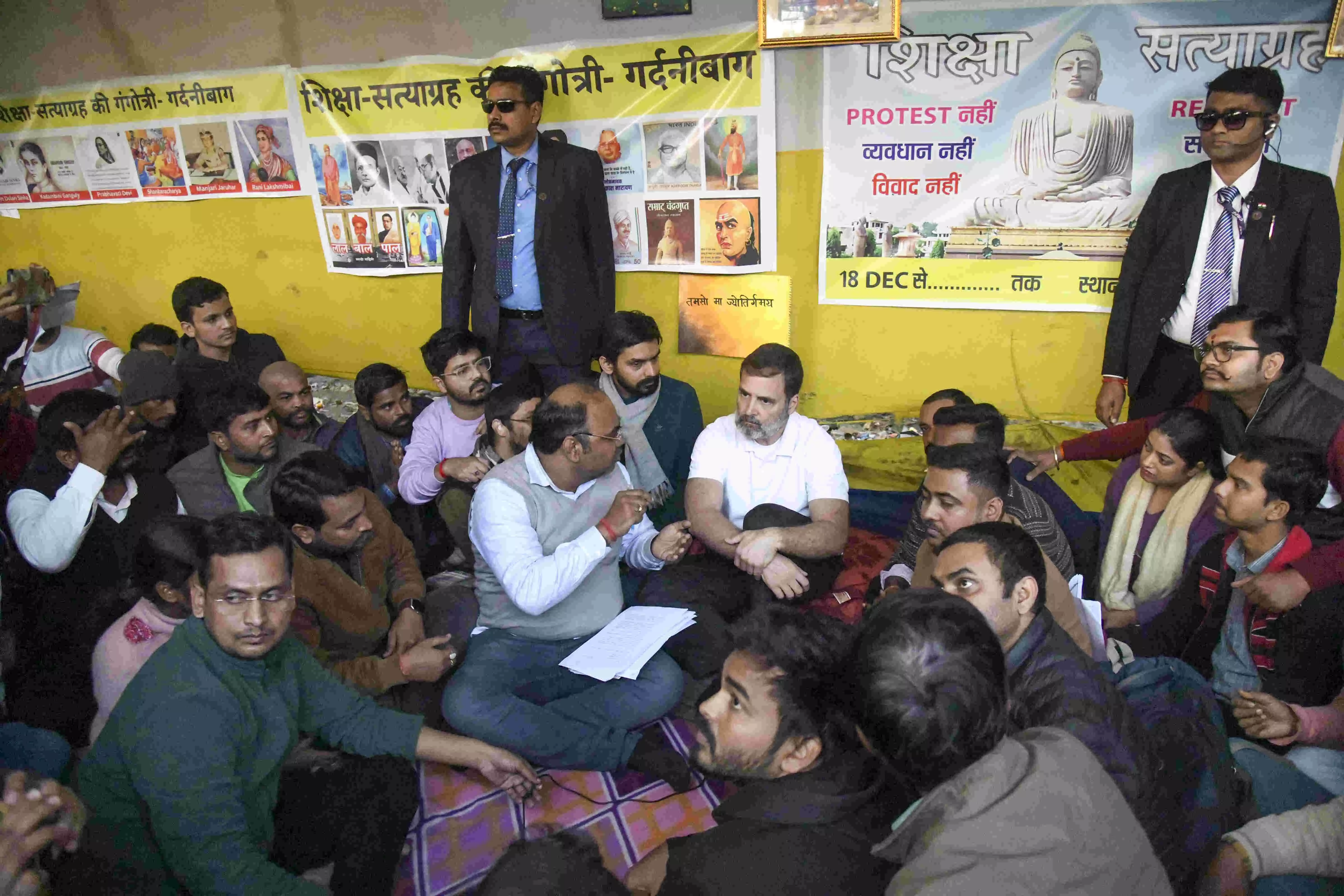Heartfelt outrage

The ongoing protests against alleged irregularities in the Bihar Public Service Commission (BPSC) examinations have captured attention nationwide. Prominent opposition leaders have lent their voices to the aggrieved candidates. Congress leader Rahul Gandhi, too, visited the protest site at Gardanibagh, Patna, to express solidarity with students demanding a re-examination. His gesture of sitting among the protestors and patiently listening to their grievances—with the assurance to raise the issue in Parliament—is laudable as long as his motivation is genuine vis-à-vis political.
The controversy came into being following BPSC’s preliminary examination for its 70th Combined Competitive Examination on December 13. Over three lakh aspirants appeared for the test across 912 centres. However, allegations of question paper leaks at the Bapu Pariksha Centre in Patna led to immediate protests. Although the BPSC initially denied any irregularities, it later conducted a re-examination for over 12,000 candidates from the affected centre. The protestors—including students, teachers, and political leaders—have accused the government and the BPSC of negligence and incompetence. Reports of delayed question papers, rumours of leaked questions matching model papers from a particular coaching centre, and chaotic management at certain centers are said to have maligned the examination process. Many candidates have questioned how the commission can claim integrity while admitting irregularities at one center. Adding to the outrage is the administration’s harsh response to the protests. A police lathi charge on demonstrators near the BPSC office had left many injured and drew sharp criticism from opposition parties. Essentially, paper leaks—from lower exams to those at the highest rungs—have been a common feature in Bihar lately. Largely undocumented, there are allegations of open compromises in the exams. Genuine competitors have been at the receiving end, as cut offs for qualification go abnormally high. The Bihar government has, over the past few years, taken stringent measures to streamline the competitive exam process, but the problem is too deep-rooted to be blown away in a single blow. These sort of exam compromises were uncommon in high-level exams such as BPSC, but now that seems to be changing. It must be noted that the level of compromised exams determines the extent of brouhaha that follows.
Students have also highlighted the deeper emotional and financial toll of these irregularities. Many aspirants, who have spent years preparing for this examination, view it as their last chance to secure government jobs. Despite their growing momentum, the protests have yet to achieve a breakthrough. The Supreme Court has directed aspirants to approach the Patna High Court, and Bihar Governor Arif Mohammed Khan has promised to take up the matter within his constitutional limits. However, the state government and the BPSC remain largely unmoved.
The protests at Gardanibagh reflect student’s frustration with systemic issues in governance. The youth are desperately asking for justice, transparency, and reform, and their voices must not be ignored. As the demands for a complete re-examination grow louder, it is imperative for the state government and the BPSC to engage with the protestors meaningfully and take corrective action. Ignoring these calls for justice risks deepening public disillusionment with the system and alienating a generation that looks to the government for opportunity and hope.



